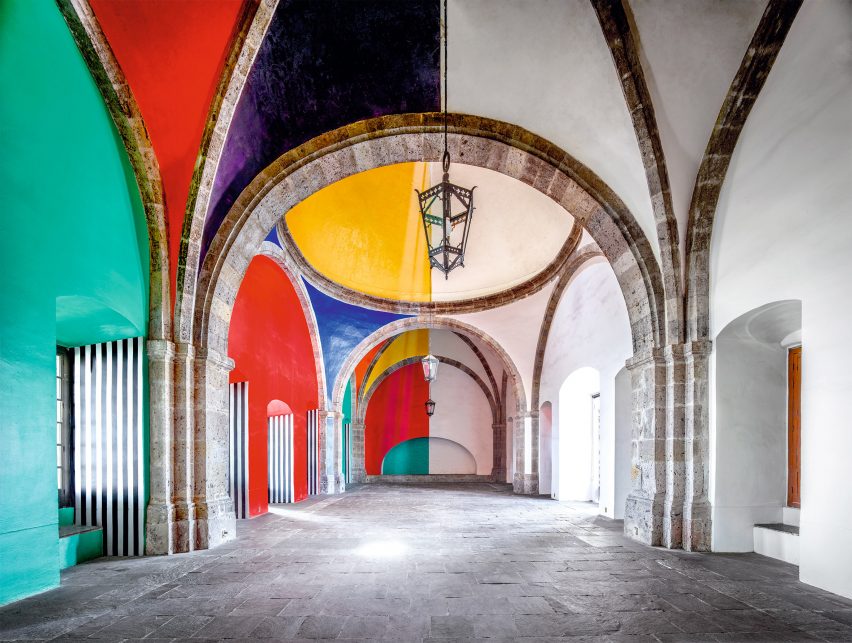
Candida Höfer's In Mexico photographs capture 600 years of architecture
From decorative Baroque churches to shadowy nooks, Mexico's architectural history is presented in this image set by German photographer Candida Höfer, which will be exhibited in Sean Kelly's New York gallery.
Set to open next month, the In Mexico exhibition brings together the architectural interior photos that Höfer shot on a trip across Mexico four years ago.
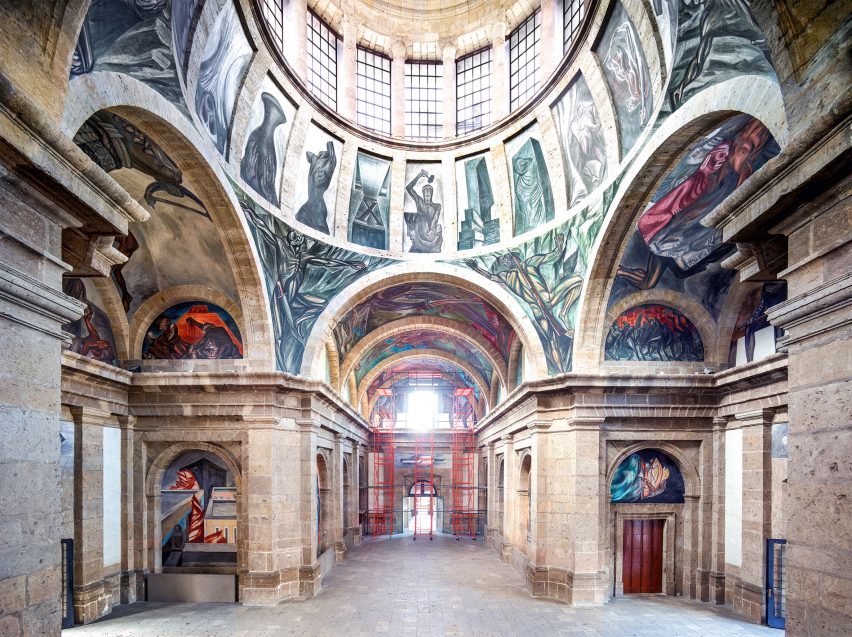
The Cologne-based photographer toured the country with her camera as part of the Mexico-Germany Dual Year exchange programme. The initiative aimed to share Germany's cultural, scientific, musical and educational projects with the partner country through 2016 and 2017.
Travelling across cities including Mexico City, Oaxaca and Puebla, Höfer captured a series buildings dating back to the 1500s.
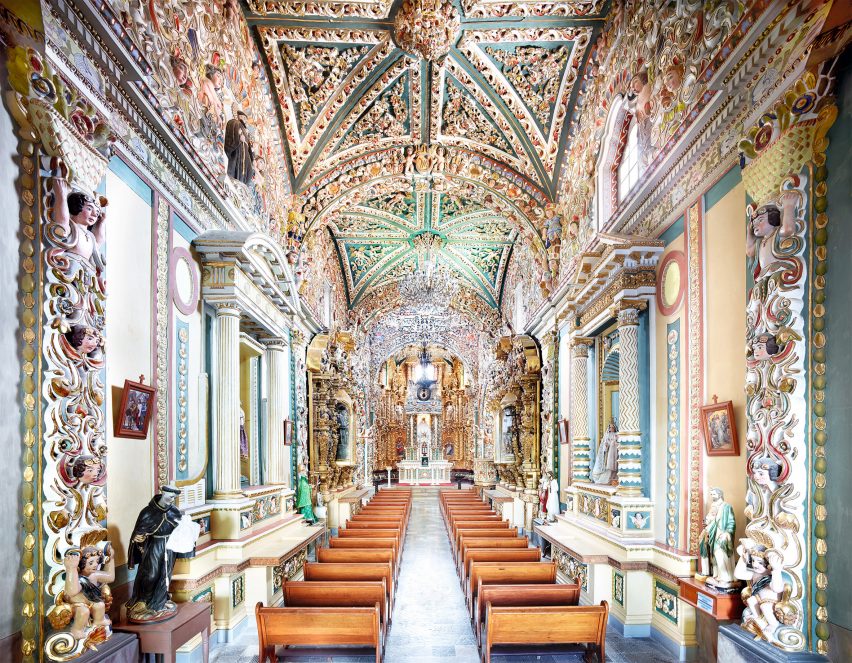
"Capturing over 600 years of architectural history from her precise perspective, Höfer's photographs document not only the physical details of these interiors but also capture the spirit and essence of each space," said Sean Kelly Gallery in a statement.
Among the earliest projects in In Mexico is the National Museum of the Viceroyalty of New Spain, built by the Jesuits in the 1500s. In Höfer's image, pink-toned columns are seen beside chunky, golden structures.
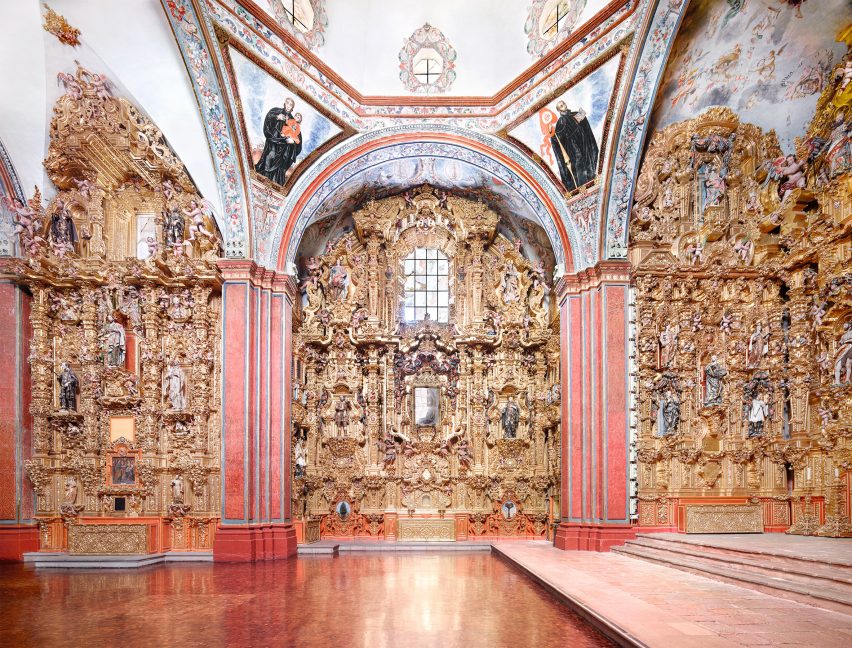
Interior shots also capture the ornately detailed structures in the Baroque style, which flourished during the 17th and 18th centuries.
Weathered walls covered in floral patterns feature in the Church of Santo Domingo de Guzmán – a monastery completed in Oaxaca in 1731 – while Puebla's Catholic church San Andres Cholula is shown to be much more decorative, with statues protruding from the walls.
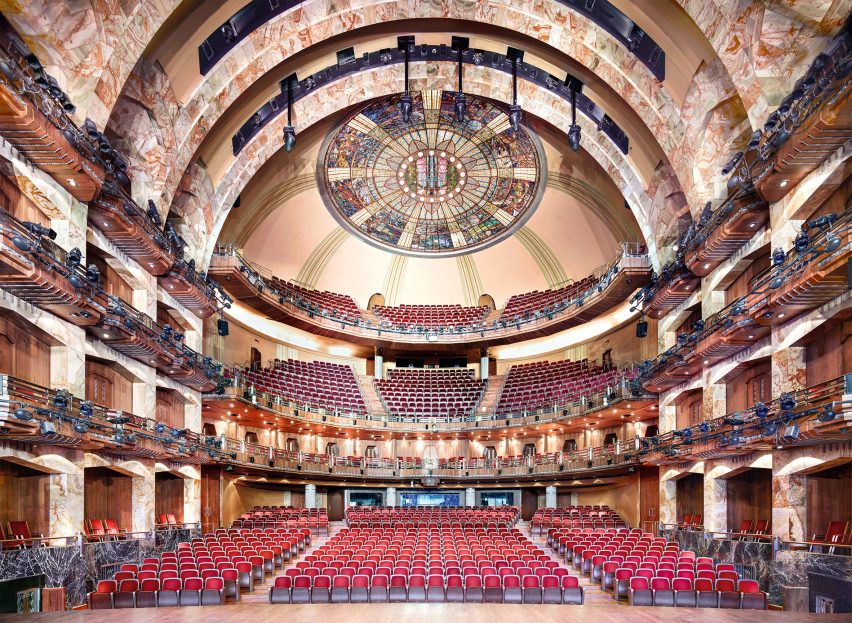
Höfer's images are devoid of people, instead drawing focus to the design of the spaces instead, which is typical to her photography style.
"I realised that what people do in those places – and what the spaces do to them – is more obvious when nobody is present, just as an absent guest can often become the topic of conversation," said Höfer.
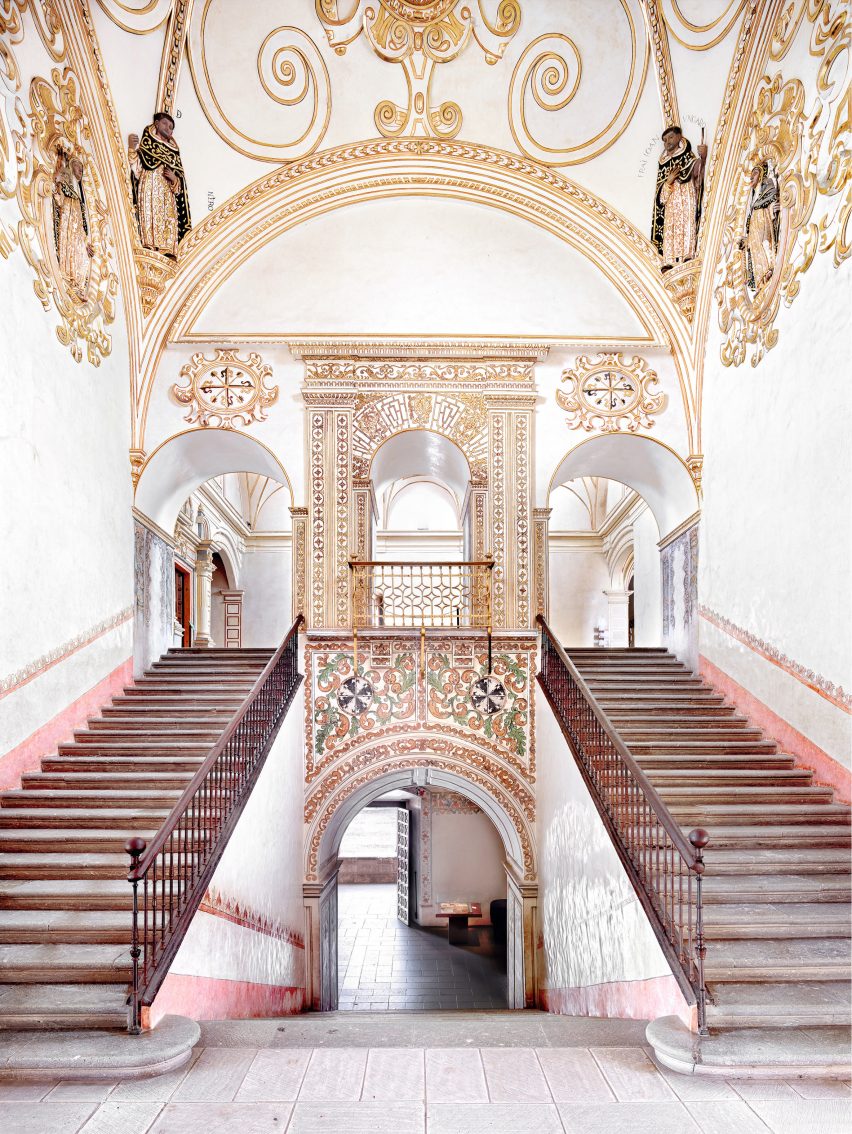
Moving onto the 19th century, Höfer has captured The Hospicio Cabañas in Guadalajara. The centre, which provided care and shelter for disadvantaged people, was designed by Manuel Tolsá in the neo-classical architecture style. Today, it is celebrated for its architectural heritage and listed as UNESCO World Heritage Site.
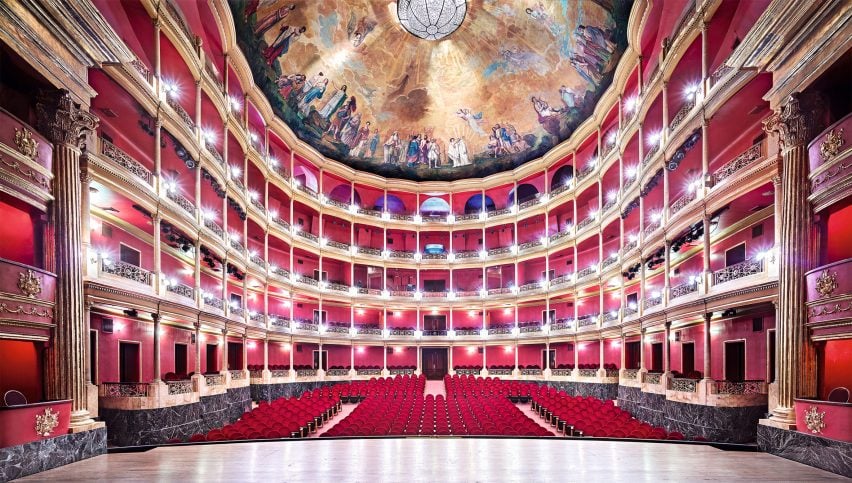
Höfer's photo shows a rounded vault coloured in bold paint – a feature added to the building as part of a series of interventions by French conceptual artist Daniel Buren. Other more contemporary works in the series include the art-deco Basurto Building, shown in an image of a brightly lit curving passageway.
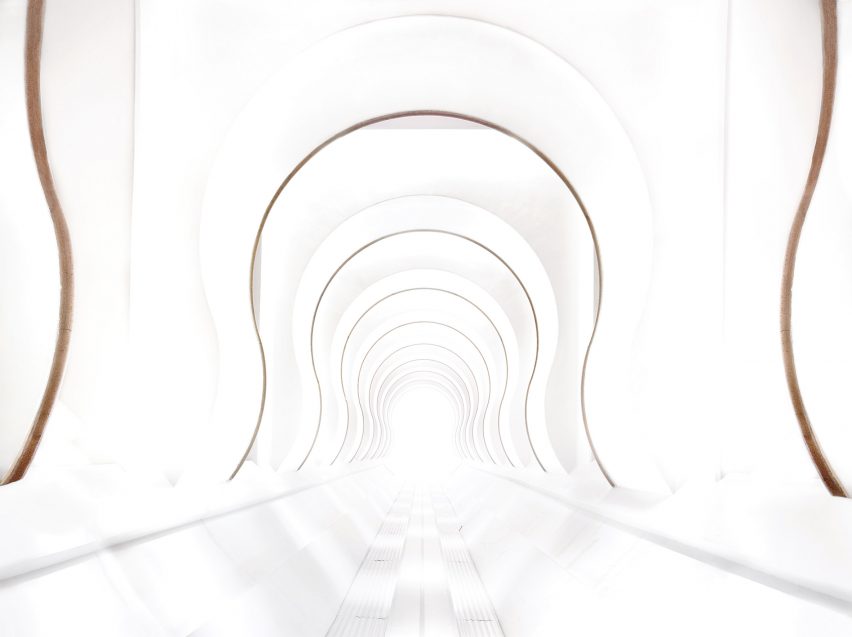
There are also a handful of detailed images captured by the artist's hand-held camera, showing hidden nooks she spotted in the country.
These include an opening with blocky pink walls that recalls the work of Mexican architect Luis Barragán – who formed the focus of another Sean Kelly exhibit – and a courtyard covered in triangular tiles that create patterned shadow effects.
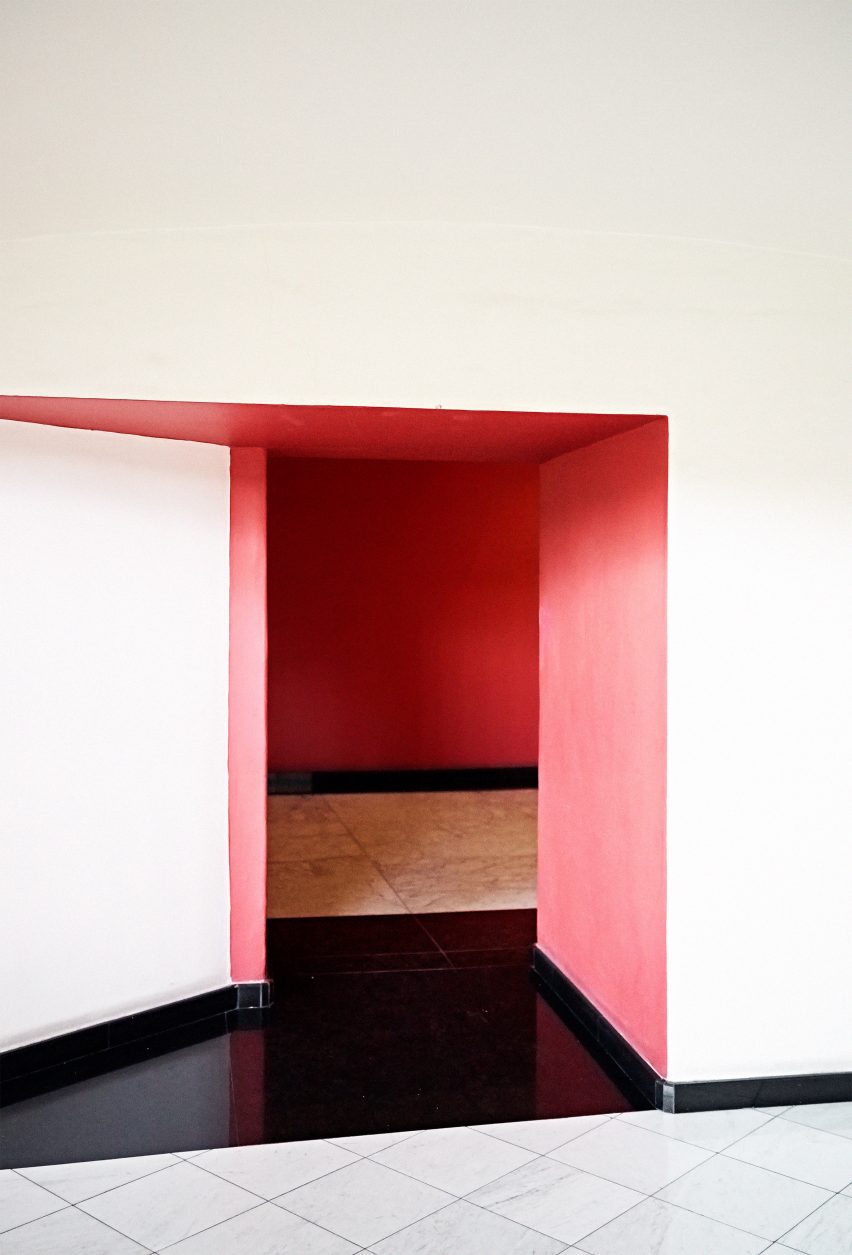
"From the subtle light breaking through a doorway entrance to the harsh shadows cast by the sun on an exterior wall, these quiet yet emotional images enhance the dialogue between the micro and the macro and bring to our attention the details in spaces that are often overlooked or inaccessible," the New York gallery said.
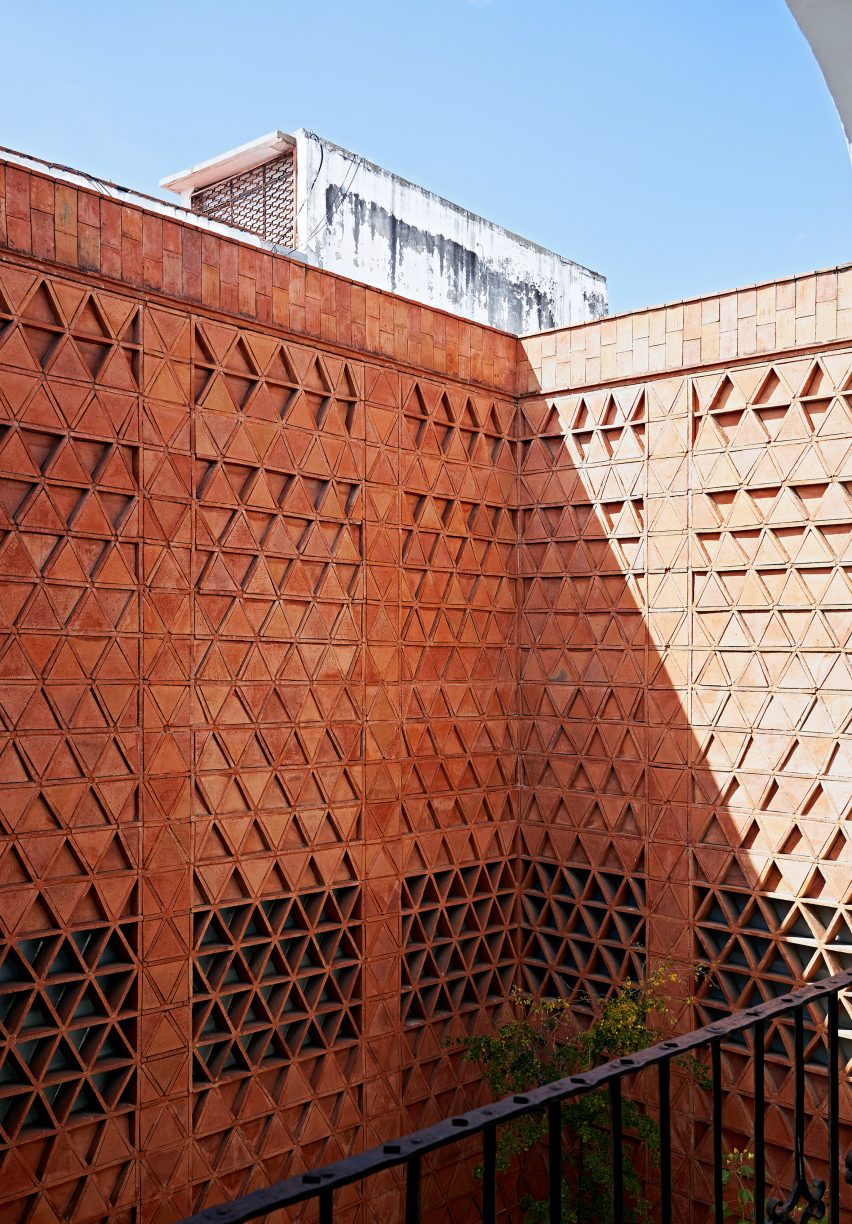
Sean Kelly will display Höfer's In Mexico photos from 2 February to 16 March 2019 at its gallery on 475 10th Ave, marking the photographer's second exhibition at the space.
Other exhibitions currently taking place in New York include the Gagosian's showcase of surfboards and swords designed by Marc Newson and Carpenters Workshop's display of David/Nicolas' furniture.